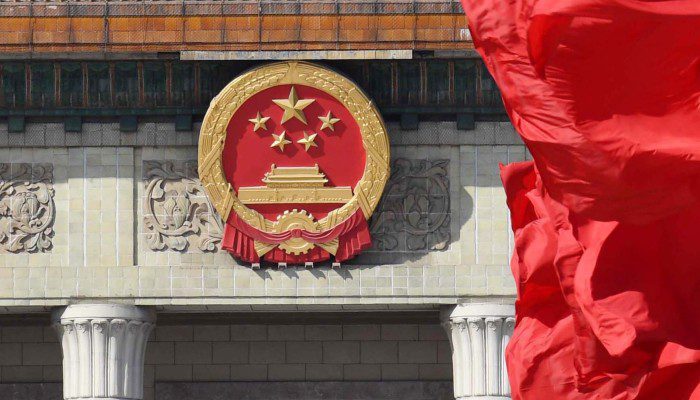In September 2018, the new anti-tax evasion regulations of China came into force.
According to the new regulation, the information related to tax on financial accounts will be exchanged between China and other countries. This Common Reporting Standard (CRS) legislation had been approved by the State Council of the People’s Republic of China already in December 2015. According to the planned timeline, financial institutions in China began collecting relevant information from January 2017.
What exactly is the CSR and Automatic Exchange of Information (AEOI)? Why is it necessary and what implications will it have? Keep on reading to learn more!
Take a look at some of our previous posts: Star Market: Shanghai’s New Stock Exchange
What is CRS?
The Common Reporting Standard, abbreviated as CSR, is an international program for governments to share financial information about international investors with their home countries. The purpose of this program is to help fight concealment of wealth, money laundering, tax evasion and to protect the integrity of tax systems. Non-compliance will result in legal action against the individual.
The CSR was originally developed upon the request of G20 and approved by the OECD Council in June 2014. The Common Reporting Standard is based on the Foreign Account Tax Compliance Act (FATCA), enacted by the U.S. a few years earlier, and Intergovernmental Agreements (IGAs) of jurisdictions agreeing to follow FATCA. These two are now collectively known as Automatic Exchange of Information (AEOI).
The original CSR had 44 “early adopter” jurisdictions to implement the program, which has now grown to more than 100 jurisdictions committed to transparency and ensuring the effective automatic exchange of information with their respective partners.
The program calls on jurisdictions to annually obtain information from their financial institutions and exchange it automatically with other jurisdictions. Information to be exchanged includes details on the account holder and information regarding the investment income, account balances, and the sales proceeds from financial assets linked with the account.
Institutions, which are required to report under the CSR include banks, custodians, asset managers, intermediaries, brokers, some collective investment vehicles, and insurance companies.
Who is monitored under the CRS?
CSR is directed towards monitoring individuals or entities residing in a CRS accepted jurisdiction, defined as non-residents for tax purposes. Thus, the main thought behind the CRS is to define where the individual is considered a tax resident.
In the case of being a tax resident outside of the country where one is doing their banking, the bank will be required to provide information relating to the individual’s accounts to the national tax authority of the country where the account is held. Consequently, they can share that information with the tax authority of the country where one is considered a tax resident. The following information will be exchanged:
- Your account number
- Account balance
- Personal data, such as name, date of birth, age, gender
- Place of residence
As a reminder – an individual will be considered a tax resident in China in case they have a domicile or reside in China for a total of 183 days in a tax year. Domicile is considered habitual residence in China due to domiciliary registration, family ties, or economic interests. Additionally, the individual is receiving income either from the PRC or from abroad. Consider also the six-year rule – you can read more about it under our previous post here.
How does the procedure look like?
Under the implementation of CRS, the financial institution is required to ask the individual to open an account to certify their residence for tax purposes. If the person is a tax resident in another jurisdiction, the institution will report the account information to the national tax authority (the State Administration of Taxation of The People’s Republic of China or the SAT, in the case of China). The account details will be shared with the national tax authority, even if the other jurisdiction has not adopted the CRS. However, the national tax authority will only share the account information with other jurisdictions if they have adopted the CRS and have signed the Multilateral Competent Authority Agreement (MCAA).
Already existing accounts at the date of commencement of the CRS, the requirement is for financial institutions to use the information.
The financial institutions will have to use the information on file for accounts, which already exist at the date of commencement of the CRS. This information shall then be exchanged unless it will need to be revised by the account holder.
If an institution fails to comply with the requirements of AEOI, it may face severe reputational, regulatory, and financial risks.
Assets to be monitored
Not all the assets are classified as disclosable under the CRS requirements – these are generally non-financial assets. However, the following will be monitored:
- Financial assets: Main target of the CRS. Most of this information will be collected and reported automatically to the tax authority of the country where the individual is a tax resident. Once the CRS is implemented, tax evasion is impossible with the use of financial product investment.
- Overseas property: What if an individual owns real estate overseas?
- An individual directly holds property overseas – CRS has no effect in this case. The CRS will only identify the financial information under financial institutions, whereas property ownership has none involved.
- An individual holds property overseas through a company/trust – in this case, a company/trust is considered an “entity” under the CRS. Disclosure of assets depends on whether this entity/trust is categorized as a financial institution under the CRS. If indeed a financial institution, the individual will need to complete the CRS account identification and information exchange will occur. If the company/trust holds property directly, the entity will likely not satisfy the definition of financial institutions under CRS and the individuals behind it will not have to be identified. If the property is held indirectly between two or more entities, the situation will be more complicated, as it is necessary to analyze in detail whether the other indirect holding company is an investment institution.
Main Takeaways
An expatriate working and living in China will have to be aware of the AEOI and the CRS.
Remember, that non-resident individuals who apply to open an account with a Chinese financial institution will be asked for more detailed information including their foreign tax identification number (TIN) during the account opening process.
Broadly speaking, non-resident individuals, enterprises, and organizations other than Chinese tax residents will be reported with the CRS to the respective participating jurisdictions. As the AEOI aims to reduce the possibilities for tax evasion, non-resident financial account information will be exchanged with the tax authorities in account holder countries of residence. Remember, that participating jurisdictions automatically send and receive pre-agreed information each year.
Need advice on finding the best strategy for your company in China? Get in touch with our team for a consultation and follow us on social media to receive the latest news!
Our experienced team has the necessary expertise and the know-how to support you with your business – have a look at the services we offer.
Also, if you are interested, check out our latest Cloud-based company management solution for your business, Kwikdroid, no matter what type or size.
(This article was originally posted in November 2018, and was updated in November 2020.)
See how much salary you receive after tax and check your company value without leaving WeChat!
Also, our Mini Program can estimate the salary in your industry, for your experience level and position. A huge help for salary negotiations!






